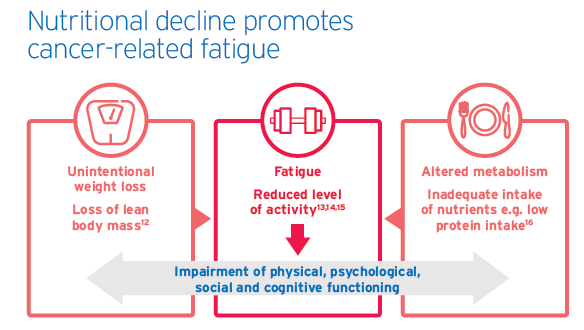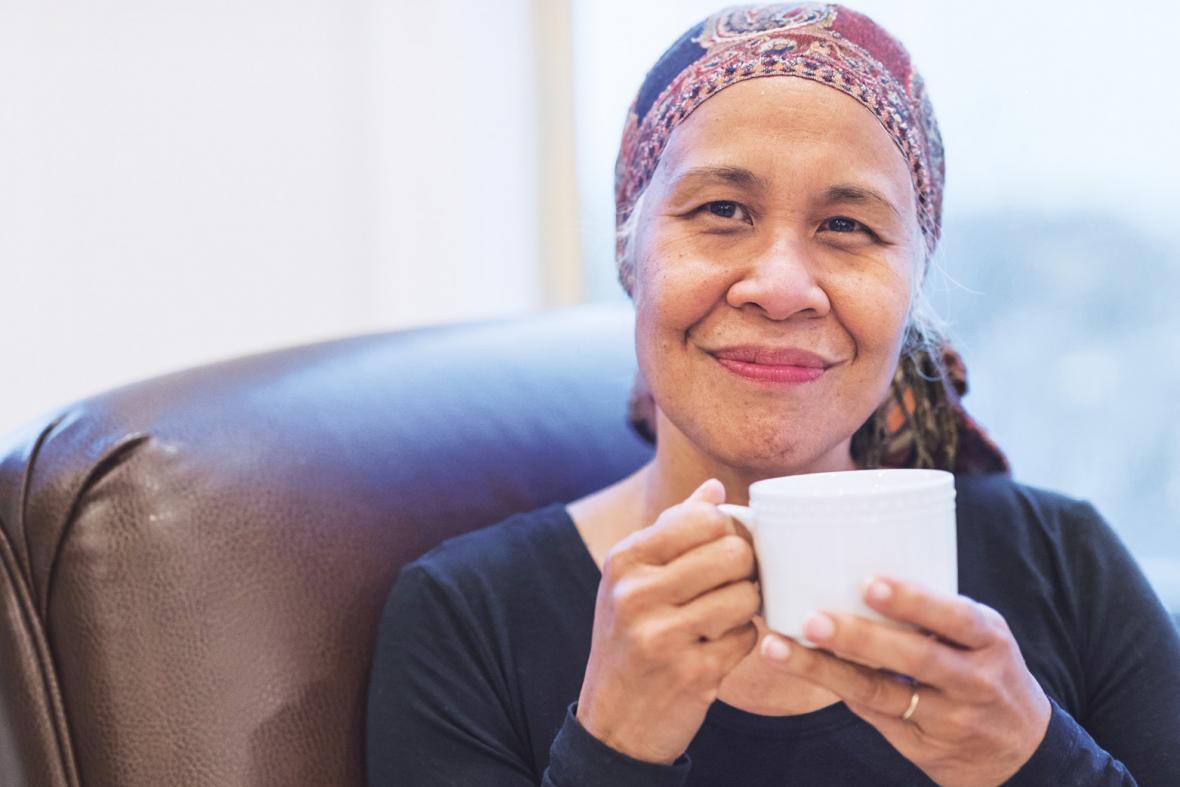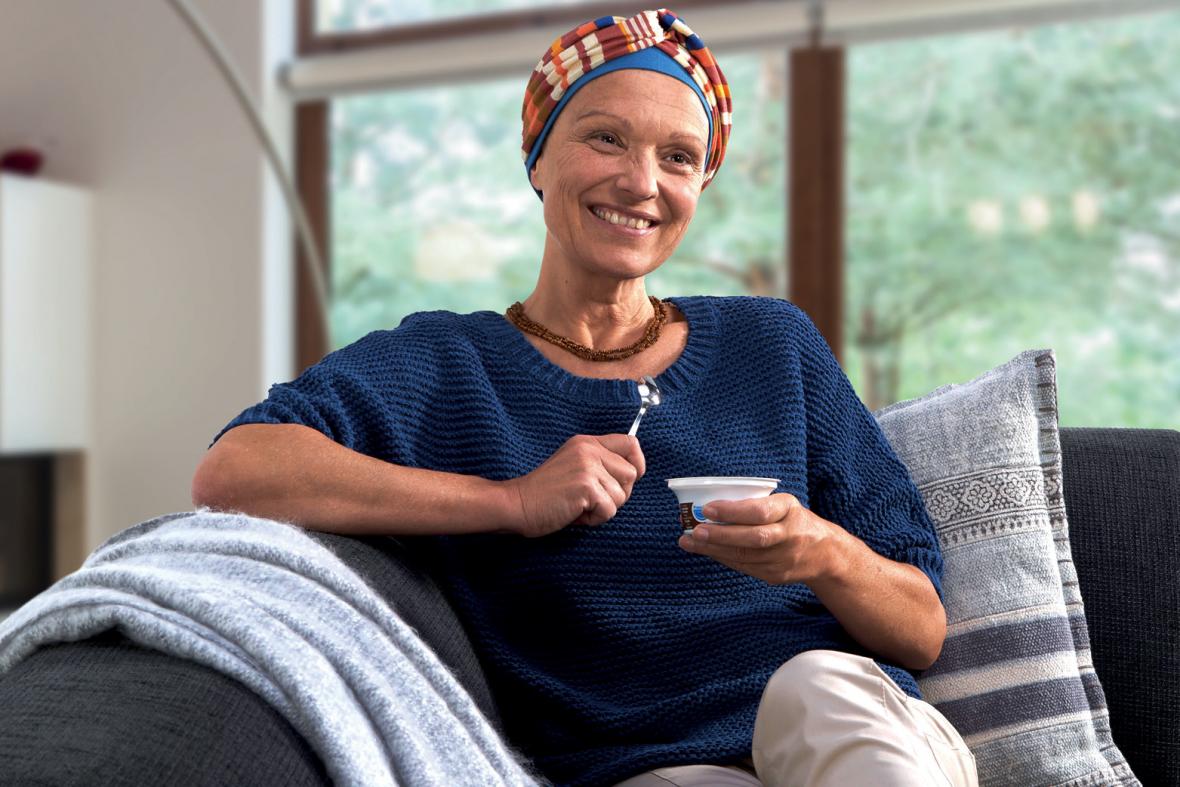
Fatigue
The most distressing symptom for cancer patients
Cancer-related fatigue - a clinically relevant side effect
Fatigue affects more patients for more of the time than any other symptom and is regarded by patients as being more important than either pain or nausea/vomiting.1
Up to 90% of cancer patients are affected2,3 receiving chemotherapy and/or radiation therapy, bone marrow transplantation, or treatment with immunotherapies.4,5 Approximately one-third of patients still experience fatigue after completion of therapy3,6 and symptoms may persist for months or years after treatment completion.7 Due to developments in cancer treatment associated with better treatment outcomes more patients with prolonged of fatigue are expected.4
Despite the high importance for patients:
Only 14% of patients were treated or received advice about the management of their fatigue.1*
*Cross-sectional, questionnaire-based patient survey
Fatigue – the most distressing symptom for cancer patients2,4
- Profoundly affects quality of life2
- Strong and independent predictor of decreased overall patient satisfaction2,8
- Reduces patient´s ability to participate in essential and valued life activities7,9
- Limits patient´s condition to complete medical treatments for cancer7
Fatigue impairs food intake
In a study examining patient self-reports on meal disturbances and food only half of the study cohort was able to prepare a meal after returning home (independent from their fatigue status)10
In colorectal cancer outpatients referred for radiotherapy increased fatigue was significantly associated with poorer nutritional intake and nutritional status deterioration.11

Supportive care for better treatment outcome
Nutrition support for adequate nutritional intake and decreasing fatigue
Low protein intake (< 1 g/kg/day) is a powerful contributor to cancer-related fatigue undergoing chemotherapy.12
Significant improvements in:
- Physical endurance
- Nutrition status
- Symptom severity
- Fatigue
were shown in advanced cancer patients undergoing an interdisciplinary rehabilitation program providing nutritional counselling alongside an exercise program and dedicated symptom control.13,14
You’d like to know more about
- The relationship between the nutritional status and fatigue
- Multimodal treatment of cancer-related fatigue?
Please download:



